The Olympics
This unique global sporting/cultural event has been taking place over the last two weeks, bringing the global audience to Brazil, whose marvelous city, Rio de Janeiro, has been the games’ host. The exuberant opening ceremony showcased Brazil at its best, this effervescent country much admired in the rest of the world.

The Rio Games, 2016
Despite some of the disdainful coverage of the foreign press, the Games so far have been a great success, with sporting legends such as Usain Bolt and Michael Phelps living up to their status with magnificent wins on the track and in the pool. While it is extraordinary that Brazil is not among the global sporting power houses, given the huge talent available in the country, there have nevertheless been memorable performances by Brazilian athletes and the medal count should be respectable.
Staging the Olympics is a massive logistical challenge and the gleeful sneering and predictions of disaster by some international observers should be rebuked with pride as, so far at least, no major disaster has besieged these games, a tribute to the Brazilian organizers.
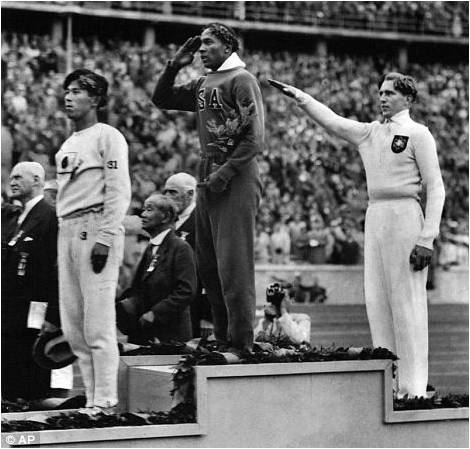
Jesse Owens in Berlin, 1936
This has not always been the case when international politics has featured prominently at several Games. The Berlin Games of 1936 were presided over by the burgeoning Hitler, getting ready to invade his neighbors and establish German domain over the rest of Europe. Unfortunately for him, the African-American athlete Jesse Owens won five individual gold medals, debunking the myth of Aryan racial superiority.
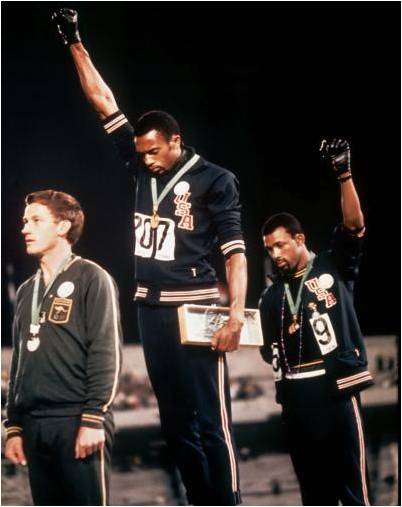
Tommy Smith and John Carlos doing the Black Power salute in Mexico City, 1968
The US Civil Rights movement appeared in full regalia at the 1968 Mexico City Games, when the 200 meter gold medal winner, Tommy Smith, put up his hand in a Black Panther salute, joined by his third-placed team mate John Carlos. This caused a stir in the US, where racial tensions were boiling from Martin Luther King’s death on April 4 of the same year.
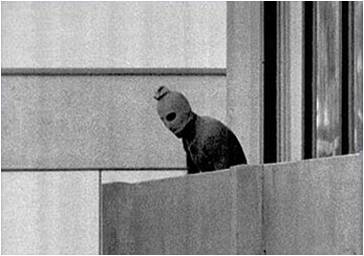
A hooded kidnapper negotiating with authorities in Munich, 1972
The most tragic event occurred at the 1972 Munich Games when 11 Israeli athletes were kidnapped and later murdered by members of the Palestinian Black September group during a botched rescue operation. The smoldering Israeli-Palestinian conflict has yet to be solved, many thousands of deaths on.
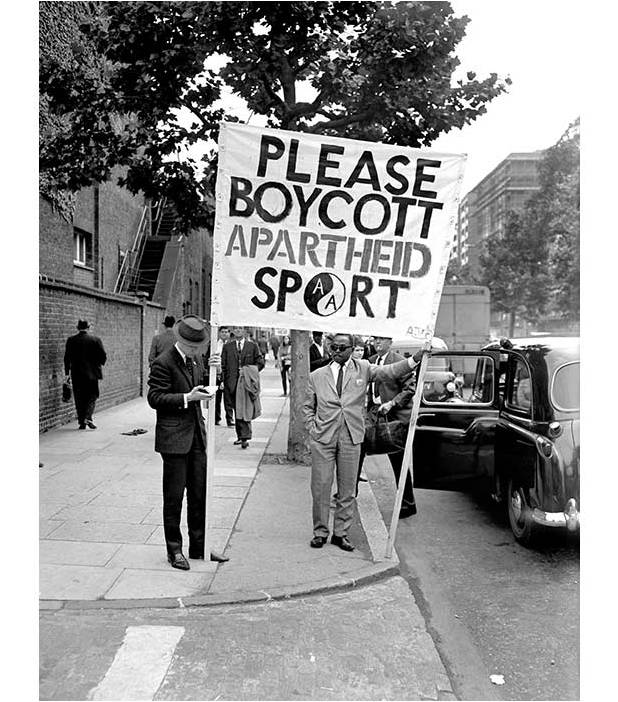
New Zealand’s rugby team’s tour of South Africa caused many African countries to boycott the games in Montreal, 1976
Politics once again intervened in the 1976 Montreal Games, where 20 African countries boycotted the games due to New Zealand’s rugby tour of South Africa that had occurred earlier in the year. Apartheid secured South Africa’s pariah status in the world and due to this brutal system of racial oppression, was excluded from the Olympics from 1964-1988 and suffered a sporting boycott.
Cold war politics shaped both the 1980 Moscow games and the 1984 Los Angeles games. After the Soviet Union’s invasion of Afghanistan in 1979, the US and 66 other countries, including Argentina and Chile, then under brutal, US supported right-wing dictatorships, boycotted the games to protest the Russian action. Four years later, the Russians and 19 other countries boycotted Los Angeles, citing security concerns and the anti-Soviet hysteria then sweeping the US.
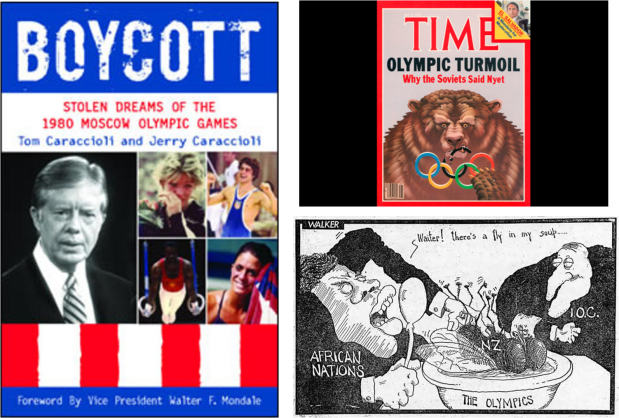
Olympic boycotts 1976, 1980, 1984
Sports and particularly the Olympics were where the superpower enemies could square off against each other to prove the worth of their respective economic systems. But a look at results would suggest that the Socialist countries had a more successful system of producing athletes. From 1948–1992, the Soviets topped the Olympic medal tables 6 times, compared with four times the US occupied the top spot. The dismantling of the Soviet Union now leaves China as the US’s biggest rival for medal hauls.
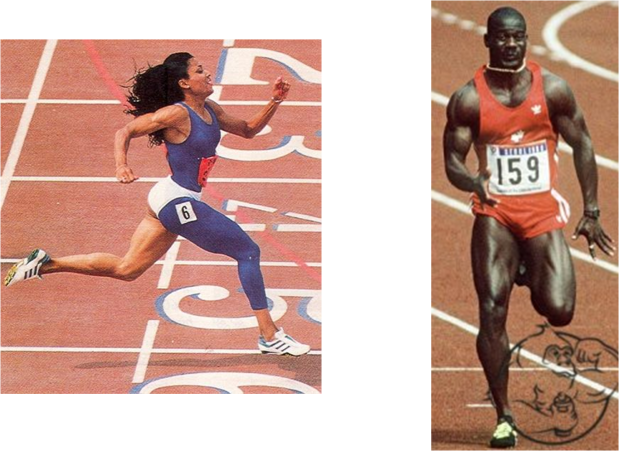
Florence Griffith Joyner and Ben Johnson, the stars of Seoul in 1988
Since then, doping has come to hover over the sport, most notably in the 1988 Seoul Olympics when the men’s 100 meter sprint winner, Ben Johnson of Canada, was stripped of his gold medal for doping. Another star of those games, Florence Griffith-Joyner, whose 100m and 200m sprint world records still stand, died of kidney failure at 39 years–old. All Russian track and field athletes were banned from competing in Rio due to evidence of systematic doping involving government authorities.
The political and economic mess Brazil finds itself in has not impacted the Olympics as might have been expected. Rigid laws to restrict protests against the government has made it difficult to get those appalled by the current situation message out to a global audience largely ignorant and insouciant about Brazil’s rotten politics.